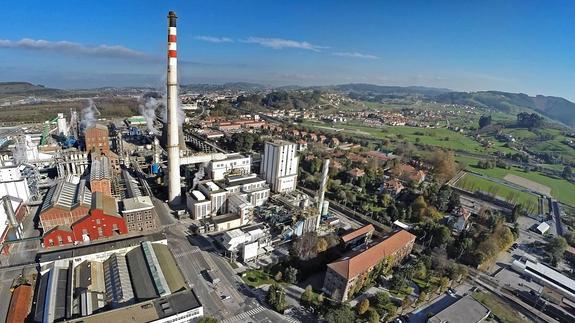
Solvay (Torrelavega)
Some definitions of chemical engineering:
Chemical engineering is the profession in which knowledge of mathematics, chemistry, and other natural sciences, acquired through study, is applied judiciously to develop economical ways for the use of materials and energy for the benefit of humanity." (A.I.Ch.E.)
"Chemical engineering is the art of conceiving, calculating, designing, having built, and operating facilities where any chemical transformation can be carried out on an industrial scale." (Prof J. Cathalá)
"Chemical engineering is knowing how to do chemistry on an industrial scale." (Prof. A. Vian)
"Chemical engineering is a branch of engineering related to processes in which substances undergo a change in their composition, energy content, or physical state." (The Institution of Chemical Engineers of Great Britain)
Chemical engineering is the branch of engineering that is dedicated to the study, design, development, operation, and optimization of all industrial processes that produce physical, chemical, and/or biochemical changes in materials.
In simpler terms, chemical engineering is the application of science and technology to convert raw materials into useful and valuable products. Chemical engineers use their knowledge of chemistry, physics, mathematics, and biology to design and operate plants and chemical processes.
The areas of application for chemical engineering are very broad and encompass a wide variety of products and processes, such as:
1. Production of food and beverages
2. Production of pharmaceuticals
3. Production of petrochemical products
4. Production of materials
5. Wastewater treatment
6. Environmental protection
Chemical engineers play a fundamental role in the global economy, as they are responsible for the production of many of the products and services we use in our daily lives.
Some specific examples of what chemical engineers do:
Design and operate oil and gas production plants, which produce fuel, lubricants, and other petroleum-derived products.
Design and operate chemical production plants, which produce a wide range of products, from plastics to fertilizers.
Develop new materials, such as nanomaterials or composite materials.
Design and operate wastewater treatment plants, which remove contaminants from wastewater.
Chemical engineering is an exciting and challenging discipline that offers many career opportunities. If you are interested in science, technology, and innovation, chemical engineering may be a great option for you.


